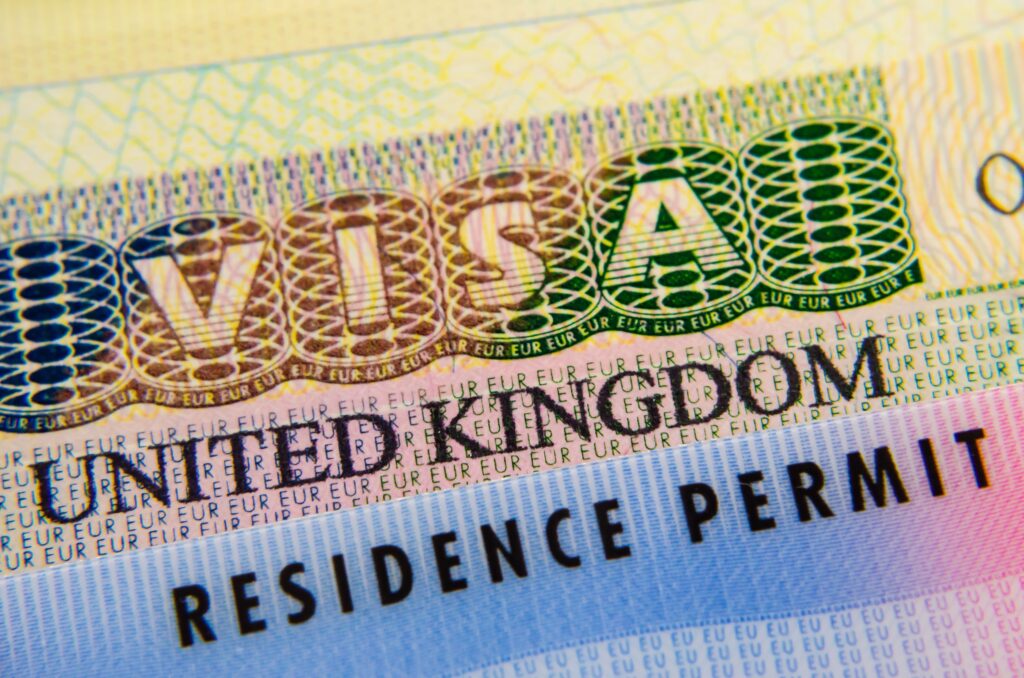Sponsor Guidance Update: 3 key changes employers need to know in 2025
On 31 December 2024, the Home Office published an updated version of the ‘Workers and Temporary Workers Guidance for Sponsors Part 1: Apply for a Licence’, which sets out a series of changes and clarifications for those businesses applying for a sponsor licence.

The main changes consist of new paragraphs stating that sponsor licences must not be used to sponsor workers in a personal capacity, clarification on employer responsibilities around sponsorship fees, and a redrafted section on Key Personnel.
Further details on each of these updates are set out below.
Ban on sponsoring workers in a personal capacity
The latest version of the guidance contains a new refusal ground where a prospective sponsor intends to sponsor workers in a ‘personal capacity’. This is sometimes referred to as ‘self-sponsorship’.
Prior to the latest update, the guidance for sponsors already stated that individual persons are not eligible to be recognised as sponsors, unless they are sole traders who wish to sponsor someone to work in their business.
However, it now explicitly states that a sponsor licence will not be granted if you intend to sponsor workers in a personal capacity, such as in either of the following circumstances:
- You are an individual person or household who wishes to employ or engage a worker, or workers, in a personal capacity and you are not otherwise conducting business or providing a service in the UK.
- The worker, or workers, will be employed by, or engaged for the personal benefit of, an individual who works for your organisation, or a close relative or partner of that individual, and the role is unrelated to your organisation’s wider activities.
If you have already been granted a sponsor licence, you must not use your licence to sponsor workers in a personal capacity as defined above. If you are found to have done so, the Home Office will usually revoke your licence.
The only exception to the general prohibition on sponsoring workers in a personal capacity is for private servants in a diplomatic household. In this scenario, a diplomatic mission, consular post or recognised international organisation can apply for a sponsor licence on the International Agreement route.
New rules on recouping sponsorship fees from employees
The guidance has been updated to reflect a commitment given in the Written Ministerial Statement of 28 November 2024 to prohibit the passing on of Skilled Worker sponsor licence or Certificate of Sponsorship fees to sponsored workers by the end of 2024.
Due to the increasing costs of sponsorship, many employers have historically attempted to recoup some of these cost from their sponsored workers using clawback clauses in employment contracts, or by charging workers upfront for sponsoring them. However, the government is concerned that this practice has led to the exploitation and unfair treatment of staff, particularly in the care sector, where many care workers have been left in debt to their employers
To rectify this, a new paragraph has been added which expressly states that sponsors are responsible for paying the sponsorship fees listed in the guidance, and that the Home Office will usually revoke your sponsor licence if you recoup, or attempt to recoup, by any means the following fees from a worker you are sponsoring:
- The Skilled Worker sponsor licence fee (including the fee for adding that route to your existing licence) and any associated administrative costs (including premium services) where you recoup, or attempt to recoup, that fee or those costs on or after 31 December 2024.
- The Certificate of Sponsorship fee for a Skilled Worker, where that Certificate was assigned on or after 31 December 2024.
- The Immigration Skills Charge for a Skilled Worker or a Senior or Specialist Worker, where you are required to pay this.
This change means employers are now fully responsible for paying these fees, and none of these costs can be included in any clawback clause or requested upfront from a prospective sponsored employee.
Changes to key personnel requirements
When you apply for your sponsor licence, you must nominate certain people to manage your sponsor licence. These people are referred to as ‘Key Personnel’. A key part of your compliance obligations as a licensed sponsor is to ensure that the people nominated as your Key Personnel are suitable and eligible to perform the roles they are assigned to.
The section of the sponsor guidance which covers Key Personnel has been completely redrafted and restructured for clarity, and includes the following new requirements:
- Sponsors must not nominate Key Personnel who are prohibited from being a company director (for any reason, including bankruptcy), unless a court has given permission for that individual to act as a director or to promote or form a business and acting as Key Personnel would not contravene that permission.
- New sponsors must have at least Level 1 User who, in their own right meets the following requirements:
- (a) is an employee, a partner or a director within the sponsoring organisation; and
- (b) is a settled worker.
- Government Authorised Exchange sponsors are advised they should no longer appoint Level 2 Users from host employers, as such users will not be given access to the new sponsorship service (Sponsor UK).
Support with applying for a sponsor licence
The UK government is committed to minimising abuse of the visa and immigration system by unscrupulous employers. Stronger controls are being implemented to prevent employers who flout UK employment laws from sponsoring overseas workers, alongside clamping down on those who show signs of non-compliance.
With this in mind, it is now more important than ever for businesses to get it right when applying for a sponsor licence or bringing in workers on an existing licence. Smith Stone Walters offers a comprehensive service for sponsors and prospective sponsors, from a fully managed licence application service to ongoing compliance advice and support. To find out how we can help your business meet its global mobility goals, please contact us today.















